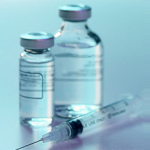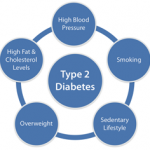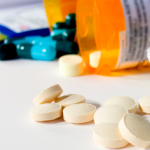Type 2 Diabetes Treatment
Type 2 Diabetes Treatment Overview
Although numerous studies and trials are underway, there is unfortunately no cure for type 2 diabetes at present. That said, symptoms can still be treated and the overall condition can be managed through a number of means. Treatment comes in many forms, including insulin and other medications as well as general health management.
Insulin
Insulin is not used for all patients of type 2 diabetes, but it is relatively common. The size and frequency of insulin injections typically depends on the patient’s condition. Some may take a large dose every night, while others may take shots twice a day or even more. For patients whose insulin production is especially inhibited, insulin pumps can be issued. These pumps deliver insulin to the body at a constant rate. This essentially simulates pancreatic function and helps to stabilize levels of insulin and blood sugar. Pumps can also be used to inject insulin in larger doses as preparation for meal times. As patients increase their blood sugar levels with the consumption of food and drink, the increased dose of insulin helps to manage their metabolism of fats and carbohydrates.
Other Medications
There are numerous medications which can be used as a substitute for (or in addition to) insulin shots. The most popular medication given to patients with type 2 diabetes is metformin. Metformin is popular because it helps to not only increase insulin levels and decrease blood sugar, but it also helps the patient to lose weight and improve their overall level of health. The primary caution patients are given before pursuing the use of metformin is that this medication can result in a building of lactic acids which may take a toll on the patient’s kidneys or liver. As such, patients who already suffer from malfunctions in these organs are prohibited from using metformin as a means of diabetes treatment.
While popular, metformin is not by far the only medication which can be used in the treatment of diabetes. There are several other classes of medication which can help as well. Many of them, such as thiazolidinediones, are not quite as beneficial as metformin but still yield positive results in a short amount of time. A number of other drugs only fulfill one or two purposes, which include limiting blood sugar levels, increasing insulin production, making the body more sensitive to insulin, or improving cholesterol. Depending on a patient’s needs as well as possible side effects, physicians might prescribe any one or two of these medications.General Health Management
The best way to manage diabetes is simply to improve one’s overall physical health. This can be done with physical exercise, especially aerobics and resistance training. The former helps to increase the body’s sensitivity toward insulin, allowing for it to perform its metabolic functions more easily. The latter is also incredibly helpful, and will help the patient to lose weight.
Exercise is valuable, but a healthy diet can especially be key in providing the type of weight loss and insulin sensitivity that the body needs to manage diabetes. There are many foods that can be factored into a healthy diet for diabetic patients. Green and leafy vegetables are very useful, as are fruits such as grapefruits which helps to provide micronutrients essential for proper maintenance of bodily functions.
Most importantly, a healthy diet and rigorous exercise can help prevent type 2 diabetes from occurring in the first place. While these things may be adequate treatment methods for many people, prevention is a much better goal. By preventing the onset of diabetes, people can help to better both the span and quality of their lives while saving themselves the costs of medication and the inconvenience associated with constant management of blood sugar and insulin levels.























